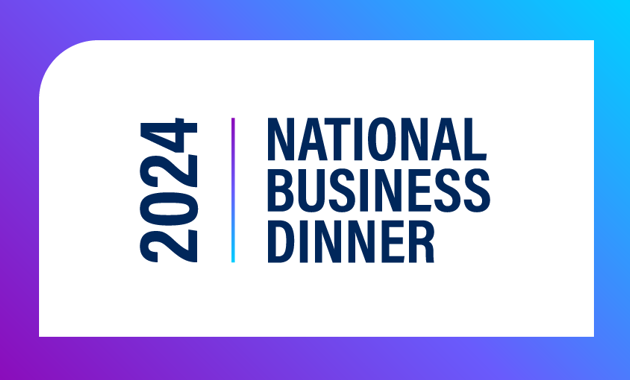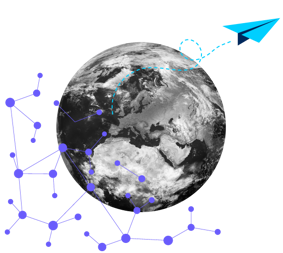- The CBI chevron_right
- Diversity and inclusion in a post-COVID world
Diversity and inclusion in a post-COVID world
Just how has diversity and inclusion been impacted by COVID-19 and what needs to happen to get back on track? The CBI's Matthew Fell takes a look.
The COVID-19 pandemic has sent shockwaves through the economy but also society. It has not only triggered a global health crisis, a global economic downturn but also a social awakening moment. The pandemic has impacted everybody, but the severity of the impact varies across society.
One thing is certain: things will not go back to how they were before and a new normal is emerging. Businesses will operate differently in the future. And business leaders will think differently about diversity and inclusion within their organisations.
Without action, there is a danger that the economic downturn will stall or even reverse progress on diversity & inclusion…
In previous economic downturns, diversity and inclusion efforts have stalled. So there is a danger that all the progress companies have made on this agenda so far is reversed. In June, all-male boards returned to the FTSE 350 dealing a blow to gender diversity. And earlier this year the government announced the suspension of gender pay gap reporting due to the coronavirus outbreak. This helped businesses to focus resources to operate in a safety environment while saving as many jobs as possible, but it’s time for the government to announce its re-introduction.
Women and people from an ethnic minority background have been among the most affected by the pandemic and the economic fallout. Given they represent three-quarters of the part-time labour force, women were hit hard when part-time jobs fell 70% in the first eleven weeks of the pandemic. Mothers have been 47% more likely to lose their jobs than fathers, according to the Institute of Fiscal Studies.
Meanwhile, BAME communities are much more likely to be affected by COVID-19. This may be explained by factors ranging from social and economic inequalities to outright discrimination, occupational risk, or living circumstances. For example, individuals from BAME communities are more likely to work in occupations with a higher risk of COVID-19 exposure, this includes the health and social care workforce, as well as cleaners, public transport and retail workers.
There is also an economic impact – BAME workers are over a third more likely than white workers to be in temporary work or zero-hours contracts.
…but there are encouraging signs showing that businesses are doing the right thing by putting people at the heart of the recovery agenda
The case for diversity and inclusion is watertight. Diverse workforces and inclusive workplaces are associated with higher individual performance because employees can innovate and are more engaged. It’s also associated with higher collective performance because diversity of thought and experience leads to better decision-making, owing to more careful processing of information than in homogenous groups.
From our members, we see that despite the pandemic and the economic downturn, diversity and inclusion remains high on their agenda. The research the CBI has conducted in collaboration with Ipsos MORI shows that two-thirds of businesses are planning to increase their diversity and inclusion activities in the two to three years beyond 2021. But this is not a time to be complacent. As we seek to build back better, it is diverse and inclusive teams that can actively drive the recovery agenda.
It is the skills sets of diverse talent that will help businesses to recover from the crisis quicker. In the upcoming months, organisations will need enhanced problem-solving skills and vision to address and adapt to the rapid changes in industries and regulatory environments.
Strategic agility – the ability to spot and seize game changers – is likely to be mission-critical for companies to survive and grow in the economic downturn. And this is the competitive advantage of diverse teams and inclusive workplaces.
The world of work is changing, and firms will need to build on existing good practices, but also develop new interventions to boost diversity and inclusion for new challenges
At the onset of the pandemic, businesses still had a long way to go on the diversity and inclusion agenda. For example, there was still a lack of female and BAME representation in senior leadership and key executive roles in FTSE companies. As we look to the future, businesses need to double down on good practices that have proven to boost diversity and inclusion in the past – such as collecting data on their workforce to uncover the specific causes of existing pay gaps and direct resources; championing diversity and inclusion from the top, embedding it in every step of their attraction, recruitment, retention and promotion practices and reintroducing gender pay gap reporting to focus on action.
The current crisis has also provided the opportunity to implement flexible working and mental health and wellbeing policies on a grand scale. The way in which employers engage with employees has changed. According to the Employment Trends Survey, more than eight in ten firms (82%) have increased communication with their staff to keep in touch with employees while almost a third of firms (64%) increased flexible working arrangements to prioritise their staff’s work-life balance. Unsurprisingly, more than half of firms (54%) have increased their mental health and wellbeing assistance for employees throughout the pandemic.
The way in which we live and work has changed. And this requires businesses to adapt by engaging their staff in discussions on how to do it successfully as we transition to a hybrid working model.
It’s a unique opportunity for businesses to develop this in a way that boosts diversity and inclusion and sustains an environment in which people from all walks of life feel welcome, like they belong, and are productive.
Explore the effect of COVID-19 on diversity and inclusion, and how business can make diversity a priority at the fourth CBI Diversity & Inclusion Conference, 30 November - 1 December. Click here to secure your place.
CBI members get unlimited tickets to attend this conference. Non-members get complimentary access to selected sessions.


